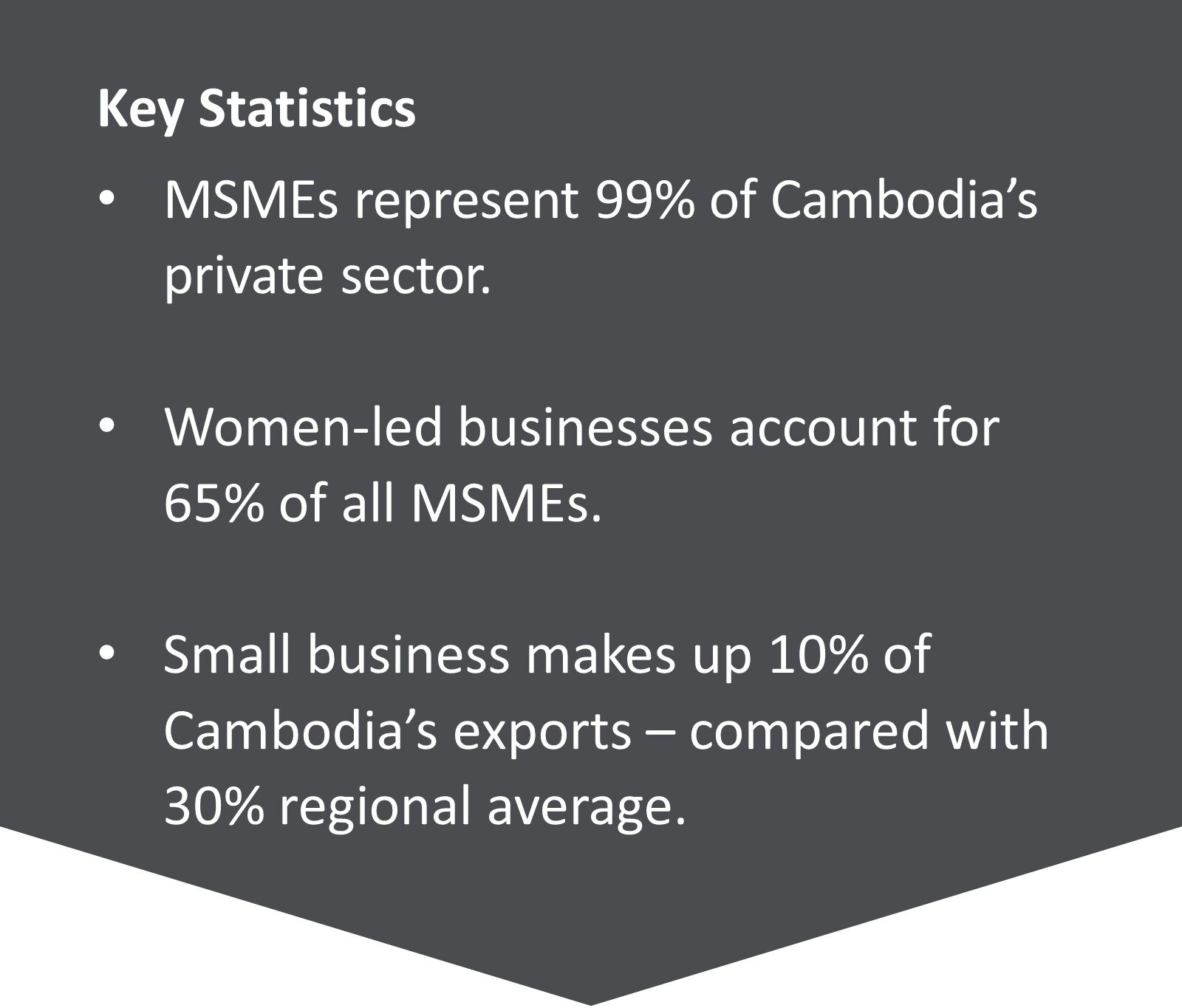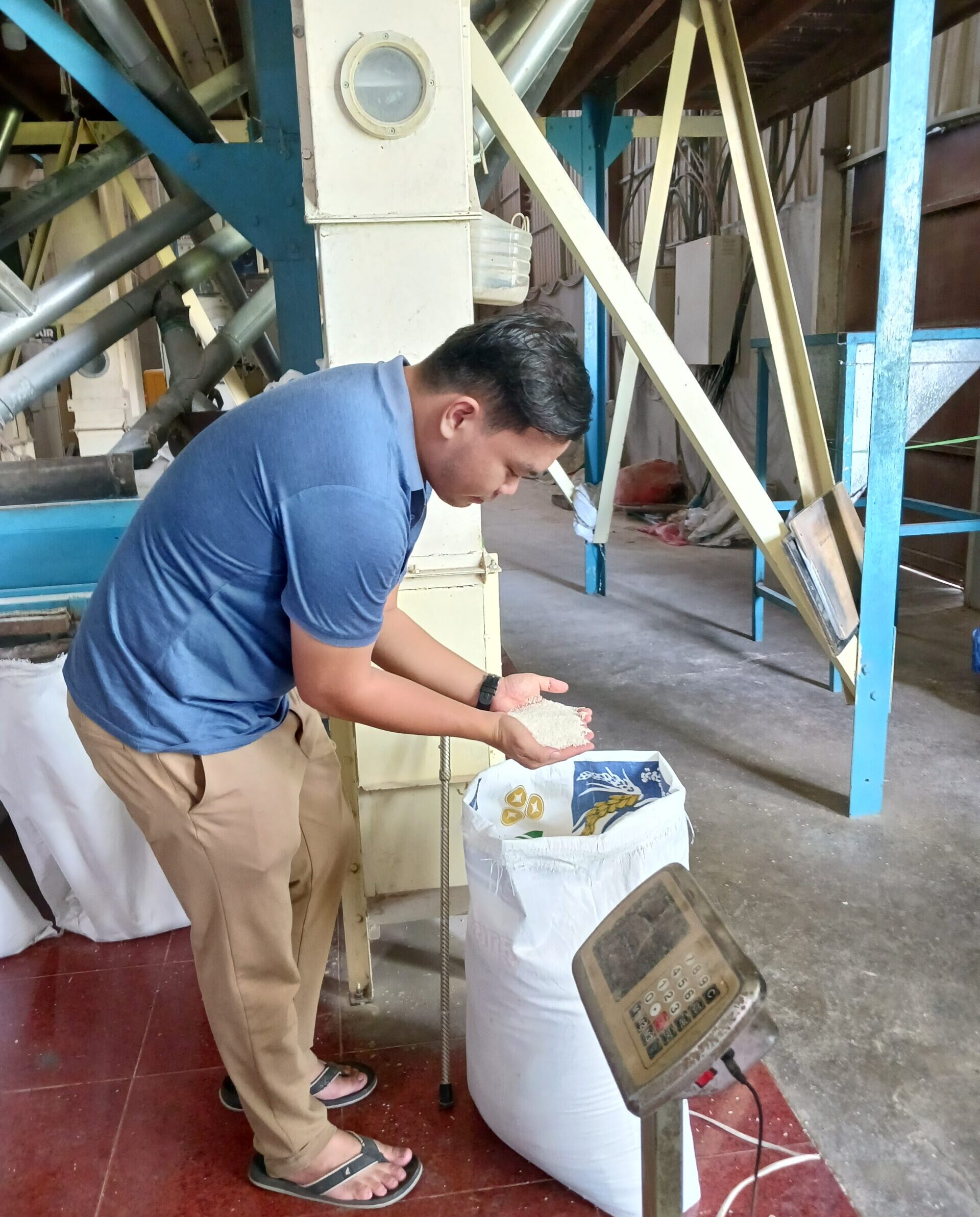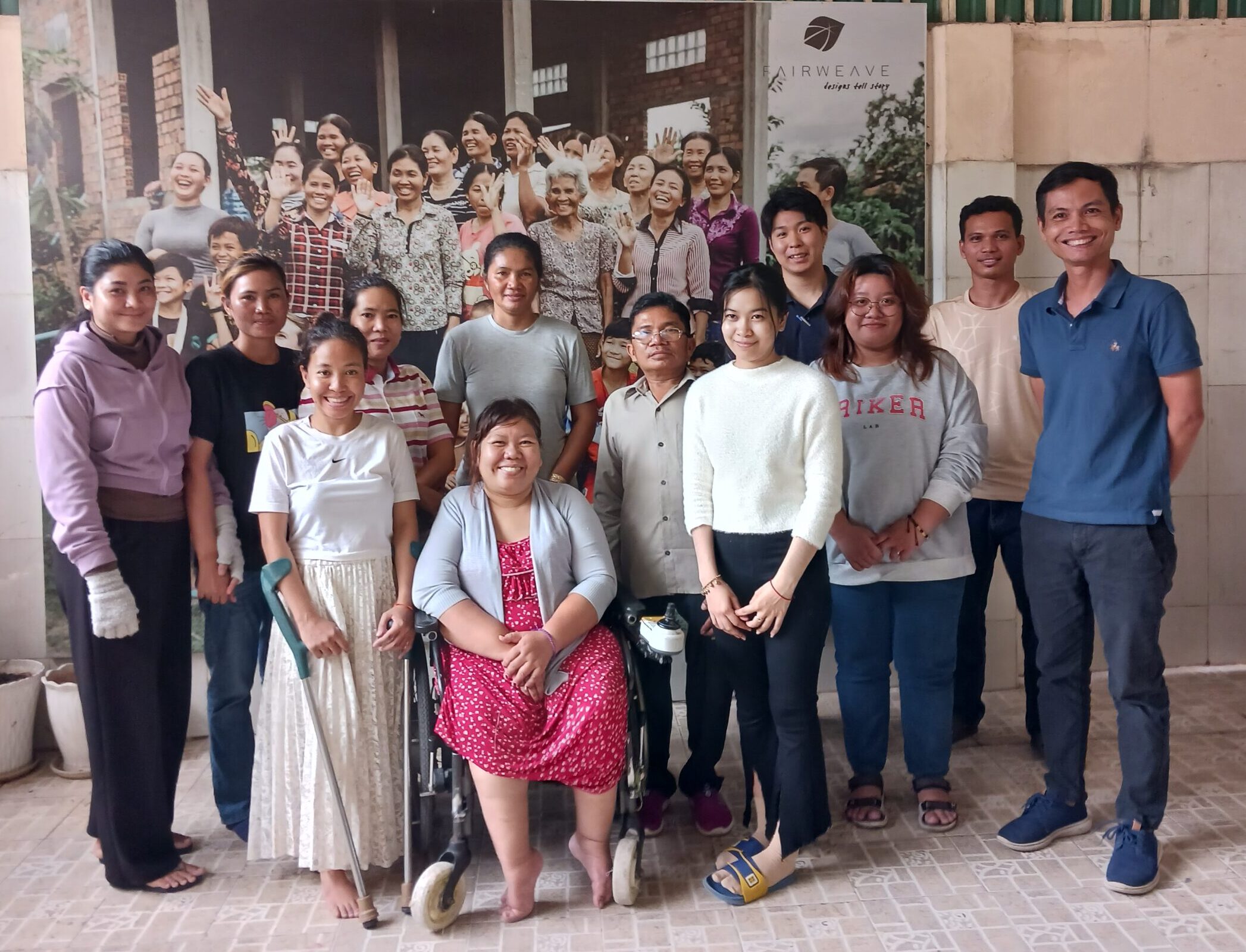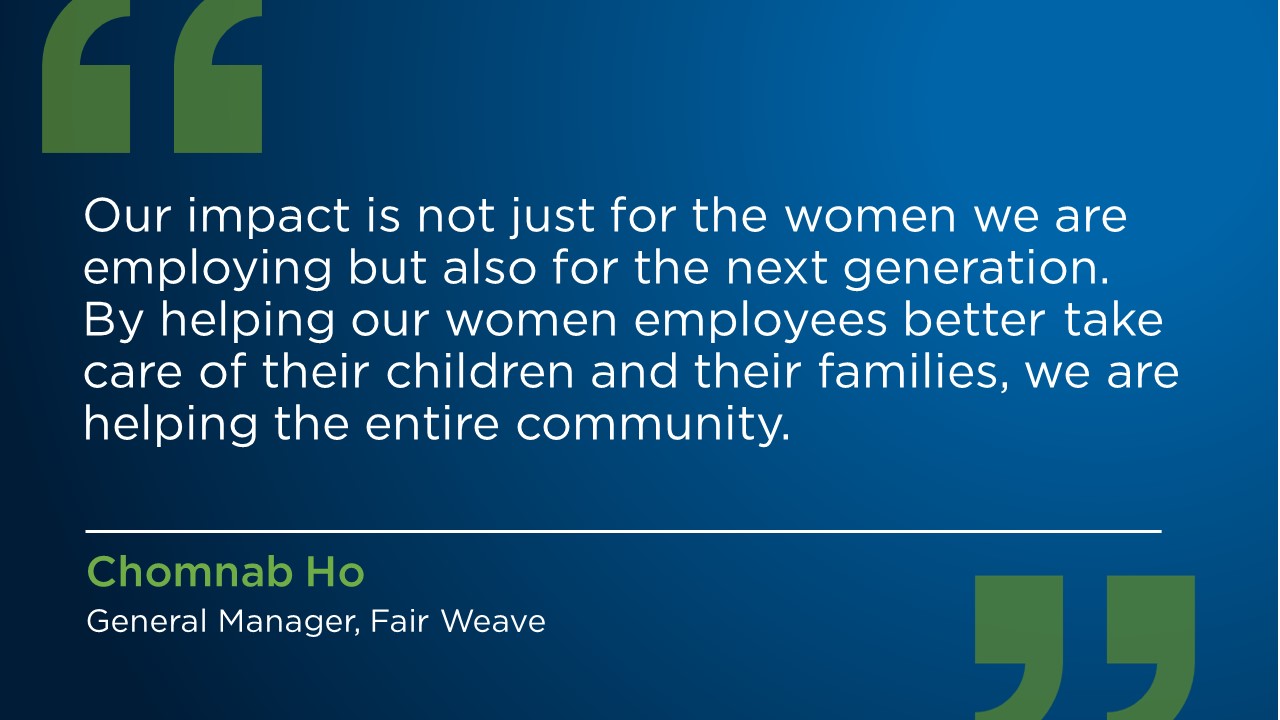 The Challenge: Connecting Local Businesses to Global Markets
The Challenge: Connecting Local Businesses to Global Markets
Micro, Small and Medium Enterprises (MSMEs) are the backbone of the Cambodian economy. Yet, their participation in the country’s foreign trade is disproportionately low, even by the standards of other countries in the region.
Small business owners say they find export processes complex and inhibiting and that they often struggle to access the required information for export-readiness.
E-commerce provides an opportunity for export growth but Customs processes and logistical challenges are curtailing this potential.
Cultivating a Taste for the ‘World’s Best Rice’
 Sambath Taing’s family-run mill in Battambang province produces fragrant Jasmine rice, rated among the top varieties in the world. Over the past three decades, it has grown from a small mill serving the local community to a national supplier, and now has ambitions to become an exporter. The owner supports 100-plus farmers who cultivate the high-quality rice by adhering to three basic principles: trust, profit sharing across the supply chain, and sustainability.
Sambath Taing’s family-run mill in Battambang province produces fragrant Jasmine rice, rated among the top varieties in the world. Over the past three decades, it has grown from a small mill serving the local community to a national supplier, and now has ambitions to become an exporter. The owner supports 100-plus farmers who cultivate the high-quality rice by adhering to three basic principles: trust, profit sharing across the supply chain, and sustainability.
Mr Taing says the Alliance project – which included tailored mentorship and peer learning on necessary export documentation and processes, e-commerce strategies, and logistics options – has accelerated his export-readiness. He singled out a visit to an exporting rice mill as being particularly valuable by providing practical knowledge from a peer MSME.
The project also enabled Mr Taing to connect and send samples to four international buyers through Cambodia Post. Now, after completing the necessary certification, Mr Taing will be in a position to supply his rice to international markets.
What We Did: Bridging the Information Gap and Forging the ‘Missing Link’
In seeking to tackle identifiable challenges to trade for MSMEs in Cambodia, the Alliance adopted a twin-pronged strategy.
- Using its trademark public private partnership approach to trade facilitation, the Alliance worked with the Cambodian Women’s Entrepreneurs Association (CWEA) to develop an e-logistics platform linking to an e-commerce platform. The aim is to encourage small businesses to embrace e-commerce opportunities by streamlining logistics options. Through the Small Package Exporter Champions (SPEC) programme, the Alliance also conducted extensive capacity-building to boost export-readiness.
- The Alliance also supported Cambodia Post and Customs in linking their respective electronic systems for processing clearances of small packages by sharing Electronic Advance Data. Integrating these systems streamlines export processes, enhancing export opportunities for MSMEs.

Fair Weave: Fair Shake
Fair Weave employs more than 60 women, many of them land mine survivors, producing a variety of handwoven textile home decor accessories, including throws, rugs and cushions. As a social enterprise, it empowers women in overcoming challenges to taking up regular employment, mainly due to their role as primary care-givers.
 Its founder, Chomnab Ho, provides competitive wages and flexible working conditions, including childcare and access to professional development training.
Its founder, Chomnab Ho, provides competitive wages and flexible working conditions, including childcare and access to professional development training.
Fair Weave’s domestic market is relatively niche, comprising ethical consumers with a willingness and an ability to pay for artisan products. This makes strong branding and export sales crucial to sustaining long-term viability.
In joining the Alliance’s Small Package Exporter Champions (SPEC) programme, the company’s main goals were to increase e-commerce sales and access higher-end export markets in neighbouring ASEAN countries, the European Union and the United States.
Mr Ho attributed a 65% increase in e-commerce sales to the mentoring and digital tools he received through his participation in the SPEC programme, including the ability to better navigate complicated export processes. SPEC also equipped him with the digital tools, such as website development and SEO marketing, to reach bigger overseas consumer markets online.
The Impacts
 The digital link between Cambodia Post and Customs systems is:
The digital link between Cambodia Post and Customs systems is:
- improving clearance processes for small parcels shipped through Cambodia Post
- removing a significant export barrier to MSMEs participating in cross-border trade
- enhancing the transparency around Customs processes and tariffs applying to small package shipments.
- improving cooperation and trust between Cambodia Post and Customs
The improved access to trade information is:
- enhancing export-readiness of MSMEs, empowering them to engage in cross-border trade
- particularly benefiting women-owned businesses who often lack access to information
Raising the MSME share of Cambodia’s exports from 10% to the 30% seen in other Southeast Asian countries could add as much as US$ 3.5 billion a year to the national economy.

